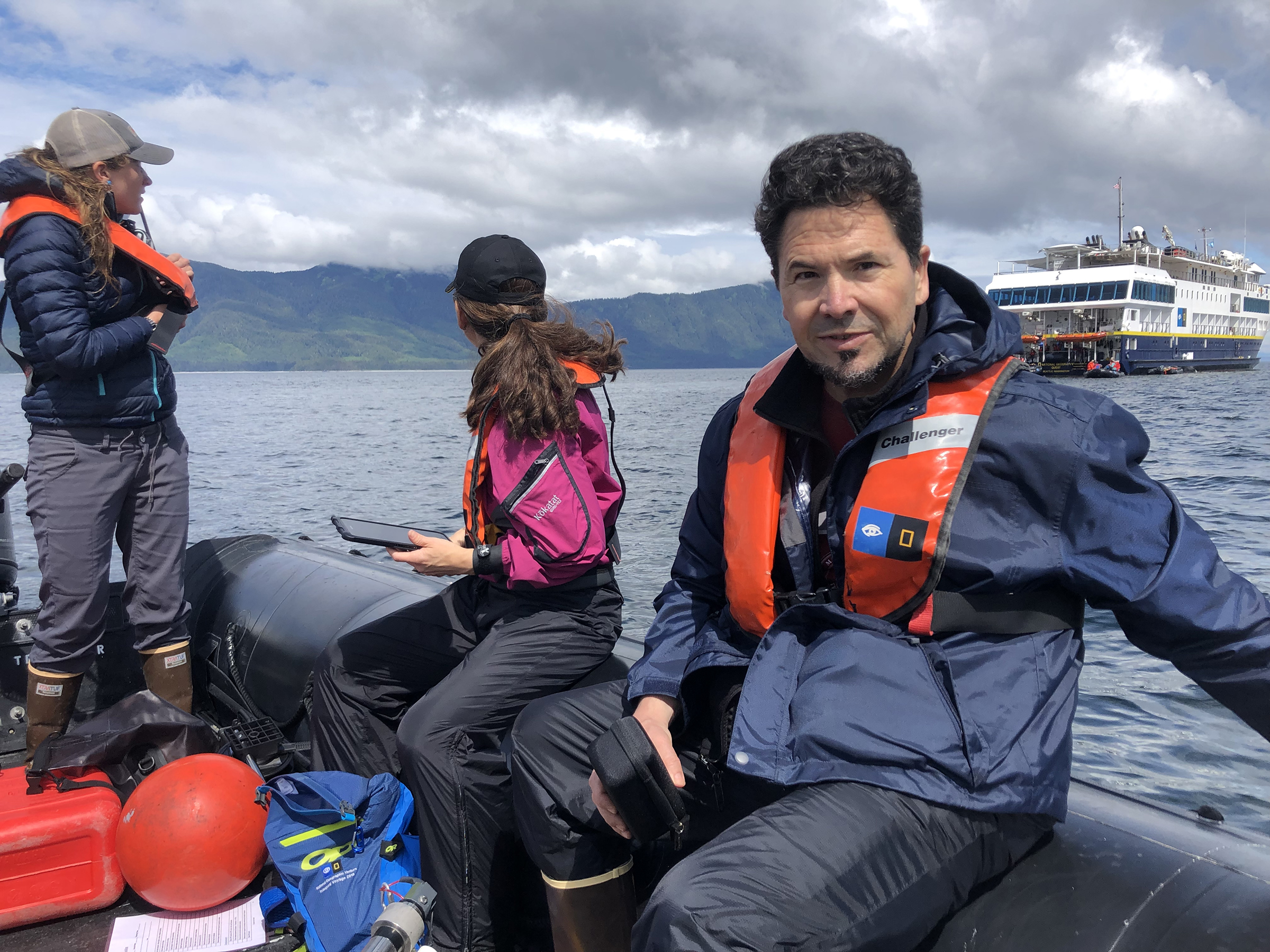
Dan Novy, assistant professor of emerging media arts at the University of Nebraska–Lincoln, will serve as a technical advisor for Ocean Discovery League’s (ODL) next-generation deep ocean sensor system, as part of a recently announced $1.2M NOAA grant project.
Novy is a transmedia experience designer and Imagineer who supervised the development of previous ODL systems. On this project, he will also assist in the integration of innovative technologies and experiences, both technical and creative, to enhance the system’s usability and impact.
“I will also be collaborating with research partners and coordinate educational and creative outreach efforts, including workshops, interactive installations, and training sessions, to empower communities to utilize the new technology effectively and capture the public’s imagination,” Novy said.
ODL, led by oceanographer and National Geographic deep-sea explorer Katy Croff Bell, has received a $1.2 million ocean technology transition grant from NOAA and the Integrated Ocean Observing System (IOOS) for the development of its next-generation deep ocean sensor and camera system. This award is one of the largest single investments to date in easy-to-use, low-cost technology specifically targeting the deep sea.
The IOOS Ocean Technology Transition program sponsors the transition of emerging marine observing technologies to operational mode. The program's goal is to improve ocean observing capabilities, which are critical for helping understand ocean, coastal and marine environments.
As part of this award, ODL will develop the deep-diving, low-cost Deep Ocean Research & Imaging System (DORIS) to lower the financial and technical barriers to deep-sea exploration and research. DORIS builds on previous modular systems developed by ODL and is a novel, customizable tool consisting of interchangeable sensing and operational modules that can be configured to meet the mission of individual projects. The high degree of flexibility and ease of use allows users to create a technological solution that meets their unique needs.
"We have seen a minuscule fraction of the deep seafloor," said Bell. "Only through scalable, innovative solutions like DORIS and expanding the community of global ocean explorers will we be able to make significant progress in characterizing this barely explored ecosystem."
The primary goal of this system is to reduce the reliance on technical expertise for operation and deployment. DORIS will aim to achieve an operational depth of 6,000 meters and include a suite of modules, including sensing modules (e.g., O2/CO2, CTD sensors) and operational modules (e.g., lighting). In 2020, Wayfinder—a prototype developed by ODL's predecessor, the Open Ocean Initiative at the MIT Media Lab—provided critical lessons in developing easy-to-use modular oceanographic systems.
The grant is in partnership with the Pacific Islands Ocean Observing System (PacIOOS), Woods Hole Oceanographic Institution (WHOI), and the University of Nebraska at Lincoln. PacIOOS supports ocean users and stakeholders throughout the Pacific Islands by providing accurate and reliable coastal and ocean information, tools, and services that are easy to access and use. The partnership with PacIOOS will achieve maximum impact for historically under-served communities, and this grant will leverage their network of communities, regional liaisons, and data visualization platform to bolster community capacity. This grant will support training, user support, and workshops to help address knowledge gaps concerning ocean technology.
"The collaboration with Ocean Discovery League on this grant cuts to the heart of the PacIOOS mission, aiming to empower ocean users in the region through more accessible data and technology," said Dr. Jordan Watson, Deputy Director of PacIOOS. "This project seeks to provide new and accessible technology while also building capacity for communities without traditional participation in deep ocean science."
Additional partners include Dr. Anna Michel, Associate Scientist at WHOI and Chief Scientist of the National Deep Submergence Facility, whose team will adapt their CO2/O2 sensor for use as a module for DORIS.
"We are proud to play a role in this global project," said Michel. "Continuing scientific exploration of the deep ocean is imperative, and broadening exploration access across the ocean community is an important initiative. The adaptation of WHOI's mini chemical sensor package for use with DORIS will play a role in developing accessible systems and advancing individual user mission objectives."
The broader impact of DORIS is placing the tools of ocean exploration directly into the hands of communities across the Pacific, providing them with the capacity to monitor a changing ocean in regions where climate resilience is the primary concern and resources are scarce. DORIS will expand access to exploration technology and broaden participation for more equitable and efficient discovery, conservation, and management. Because of its modular and portable nature, it can enable communities to target specific areas of concern within their local environments.
NOAA and ODL also recently signed a formal agreement to collaborate to accelerate deep-ocean exploration by developing low-cost tools and technologies, such as deep-sea cameras, that give greater, more equitable access to the broader public and scientific communities to explore the deep ocean.